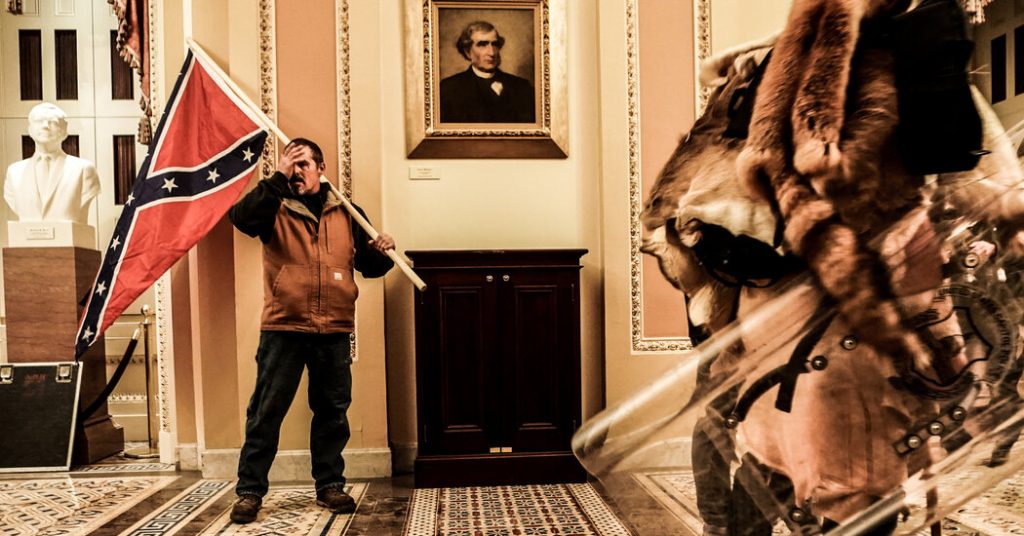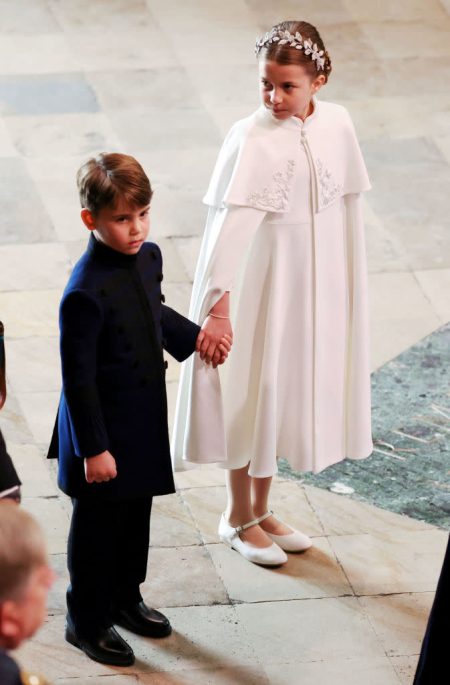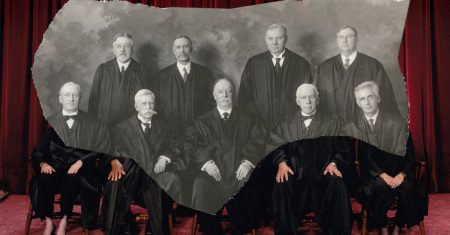The Supreme Court is currently examining the 18 U.S.C. 1512 obstruction law, which has been widely used against individuals involved in the Jan. 6 attack on the Capitol. This decision is already impacting some of the rioters, with a small group of defendants being released from custody while awaiting the Court’s decision, which is not expected for several months. Among those released is Matthew Bledsoe, who scaled a wall at the Capitol and planted a Trump flag in the arm of a statue of President Gerald R. Ford. Other defendants like Kevin Seefried and Alexander Sheppard are also expected to be released soon.
The 18 U.S.C. 1512 charge has been utilized against over 350 rioters, including prominent figures like Jacob Chansley, the QAnon Shaman, as well as members of extremist groups like the Proud Boys and the Oath Keepers. Legal experts have expressed concerns that a ruling by the Supreme Court narrowing the scope of this law could have detrimental consequences on the Justice Department’s efforts to hold these individuals accountable for their actions during the Capitol riot. Despite these worries, federal prosecutors have shifted their strategies in anticipation of the potential impact of the Court’s ruling.
While the threat of a Supreme Court ruling on the obstruction law has caused adjustments in Capitol riot cases, there are currently no defendants facing solely the obstruction charge. Each individual indicted on this count also faces other charges, ensuring that even if the obstruction law is no longer applicable to Jan. 6 cases, there would be no cases dismissed entirely. If the Court rules that the obstruction count does not apply to the Capitol attack, it would primarily impact the sentences defendants receive, as the charge carries a maximum penalty of 20 years in prison. Judges have indicated they may increase sentences based on other charges if the obstruction count is not available.
In recent months, judges have begun to consider potential sentencing adjustments in response to the Supreme Court’s review of the obstruction law. For instance, Judge Royce C. Lamberth denied an early release to an Iowa man, Leo Kelly, who was sentenced to 30 months in prison for obstruction and other misdemeanors. Despite the possibility that the Supreme Court may rule against the obstruction charge, Judge Lamberth suggested he could extend Kelly’s total prison time by imposing consecutive, rather than concurrent, terms on the misdemeanor charges. These preemptive adjustments indicate a willingness by judges to adapt sentencing strategies based on the outcome of the Court’s decision, ensuring that repercussions on Capitol riot cases may be managed effectively.














